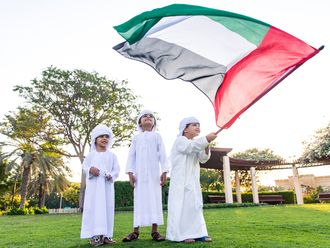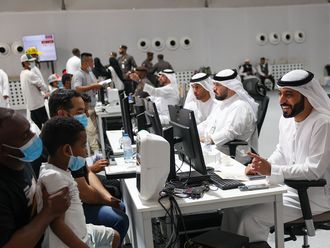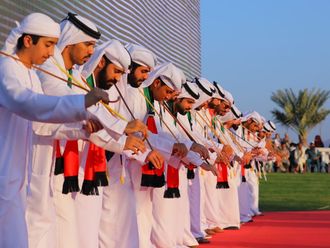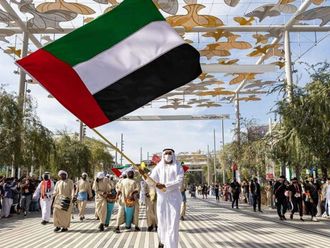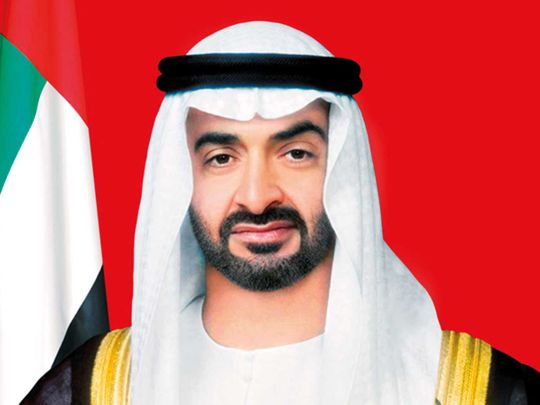
Abu Dhabi: Under the directive of President His Highness Sheikh Mohamed bin Zayed Al Nahyan, the 28th United Nations Climate Change Conference of the Parties (COP28) will be hosted at Dubai Expo City.
The directive underlines the venue’s unique proposition as a state-of-the-art destination, which brought the world together in the UAE for six months. Both Expo 2020 and COP28 share similar objectives: Achieving sustainability and promoting international action as essential steps towards facing global challenges.
COP28 represents a moment of vital significance as the world seeks to maximise progress since the Paris Agreement. The conference will witness a critical stocktaking moment for climate action under the Paris Agreement, in addition to defining future Nationally Determined Contributions.
Accelerating global progress in climate action
With Egypt hosting COP27 in November 2022, the UAE is committed to working closely with the host government to accelerate global progress in climate action and adapting to the repercussions of climate change.
The United Nations Framework Convention on Climate Change was launched in 1992 in Brazil. The conferences are formal meetings, held annually since 1995, which aim to find solutions to reduce the impacts of climate change. At COP26 in Glasgow, the UAE was chosen to host COP28 in November 2023.
COP28 focuses on key pillars, including the implementation of climate commitments and pledges, inclusion, working together to take concrete action and identifying solutions that contribute to overcoming challenges, and seizing opportunities to ensure a sustainable future for present and future generations.
Commitment to key areas
The selection of Dubai Expo City as a venue for COP28 builds on the legacy and message of ‘Connecting Minds, Creating the Future’, and affirms commitment to the themes of sustainability, opportunity, and mobility, while showcasing its advanced and sustainable infrastructure, in line with the UAE’s vision for COP28.
The conference is expected to see more than 45,000 participants daily, including heads of state, government officials, international industry leaders, private sector representatives, academics, experts and representatives of civil society organisations. The new city, announced by His Highness Sheikh Mohammed bin Rashid Al Maktoum, Vice-President and Prime Minister of the UAE and Ruler of Dubai, will be a global hub for innovation and creativity. It will represent a model for the future city that preserves the UAE’s legacy as an active contributor to the progress of the region and the world.
UAE, a world-class destination
The UAE has a proven track record in climate action and multilateral cooperation. It is the permanent host country for the International Renewable Energy Agency (Irena), the first country in the region to sign and ratify the Paris Agreement, and the first in the region to commit to an economy-wide reduction in emissions.
In addition, the UAE has also established itself as a world-class destination for hosting high-level international events focusing on climate action and sustainable development.
Over the past 15 years, the UAE has emerged as a regional leader in renewable and clean energy investments, both domestically and internationally. It invested $50 billion (Dh183.9 billion) in clean energy and has recently announced its plans to invest more than $50 billion over the next decade in additional projects, including hydrogen and ammonia.
Read more
- UAE: Research programme for rain enhancement science’s latest project begins
- Environment Agency-Abu Dhabi wins MENA Digital Award 2021
- More than 100,000 plastic bottles saved — thanks to ‘Dubai Can’ initiative
- UAE President’s announcement of $50 billion investment a new milestone in UAE’s climate action efforts: Mariam Almheiri
Leveraging innovative climate action
The UAE operates three of the world’s largest and lowest-cost solar plants and has invested in renewable energy projects in 70 countries. These investments include more than $1 billion in grants and loans to 27 island countries that are resource-stressed and particularly vulnerable to the impacts of climate change.
The UAE leverages effective and innovative climate action as a key driver to building a new, low-emissions economic growth model, underpinned by sustainability, and one that will create meaningful employment opportunities in new sectors thereby driving the ambitions of the UAE, the region, and the world.


